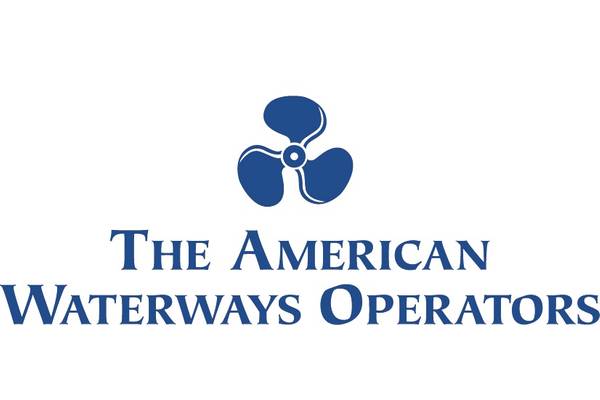

On June 27, I testified on behalf of the American Maritime Partnership (AMP) before the House Coast Guard and Maritime Transportation Subcommittee at a hearing that questioned the Administration’s skirting of the Jones Act during last summer’s Strategic Petroleum Reserve (SPR) drawdown.
Members of Congress were keenly interested in understanding how the Administration authorized waivers for foreign flag ships to carry U.S. oil between U.S. destinations when American vessels crewed by American mariners were available to carry these cargoes – a clear Jones Act violation – and what measures need to be taken to avoid a repeat of this unacceptable situation in the event of a future drawdown.
In my testimony, I made it clear that the Jones Act is the law of the land for good reason. It supports U.S. homeland security, national security and economic security. It helps ensure a robust domestic maritime transportation industry, critical to the efficient flow of essential commerce. And, perhaps most importantly in this still troubled economy, it helps preserve quality-wage jobs that support U.S. mariners and their families in communities all across the country.
The most troubling aspect of the 2011 SPR drawdown was that in spite of public statements supporting the Jones Act, the Administration’s actions simply did not match what it was saying and in fact ran counter to those expressions of support. The use of foreign flag vessels in 99 percent of the SPR shipments denied opportunities to American companies and American workers. With unemployment hovering over nine percent at the time of the drawdown, the Administration missed a chance to provide the opportunity for additional work and potential job creation in an important sector to the national economy. Indeed, it outsourced American jobs.
What keeps me awake at night, however, is the likelihood that this scenario could repeat itself. This would amount to the hollowing out of the Jones Act and should be cause for alarm for anyone concerned about the future of the U.S. maritime industry.
The departments and agencies within the federal government responsible for Jones Act implementation – the U.S. Maritime Administration (MARAD), which determines if U.S. vessels are available; U.S. Customs and Border Protection (CBP), which has the legal authority to grant Jones Act waivers; and the Department of Homeland Security (DHS), which signs the waivers, appear to have ceded control to the Department of Energy (DOE), which initially issued a broad waiver of the Jones Act to move the SPR oil. Immediately after the drawdown was announced, DOE was reminded by MARAD that it was required to “make full use of American vessels.” MARAD also provided DOE with a list of U.S. flag vessels that could be available to move the cargo. Less than 48 hours after issuing the blanket waiver, the Administration rescinded it.
Unfortunately, DOE’s subsequent actions resulted in a de facto blanket waiver of the Jones Act in place of an explicit one. While the Notice of Sale for the SPR oil required that it be moved in self-propelled tankers of at least 300,000 barrels or barges of at least 40,000 barrels, there is evidence that DOE communicated to potential purchasers in advance that Jones Act waivers would be issued upon request for shipments of 500,000 barrels or more. It is not a coincidence that well over half of the Jones Act waiver requests were for exactly a 500,000 barrel lot size and all of the requests were in amounts of at least 500,000 barrels. The result of this arbitrary, unwritten rule was the exclusion of nearly all American vessels from even being eligible to carry the SPR oil, with nearly four dozen Jones Act waivers and only one lifting by a U.S. flag vessel.
Another disturbing aspect of the 2011 drawdown was the way in which vessel availability was determined. MARAD maintained a list of U.S. flag vessels available to move SPR oil and all vessels on that list exceeded the minimum vessel requirements listed in DOE’s Notice of Sale. There did not appear to be operational roadblocks to using U.S. vessels. And yet, MARAD routinely found that no American vessels were available and approved the Jones Act waivers. The only possible explanation is that MARAD was determining availability based on DOE’s promotion of a 500,000 barrel minimum vessel size. This troubling chain of events at best indicates conflict and miscommunication within the Administration. At its worst, it is a deliberate exclusion of American vessels that could well be repeated in a future drawdown to the further detriment of our national interests.
To its great credit, Congress acted strongly and passed legislation that prohibits the expenditure of federal funds for the granting of Jones Act waivers until DHS takes adequate measures to ensure the use of U.S. flag vessels. Further, no waivers may be granted until the Department of Transportation (DOT) has determined whether U.S. flag vessels with single or collective capacity are capable of assisting with an SPR move. DHS and DOT are also required by statute to consult with the industry on vessel availability. Industry has also been very active in efforts to ensure that the Administration has accurate information about the availability of U.S. vessels.
While publicly the Administration acknowledges that the Jones Act is a “well-established element of U.S. law,” it is also clear that it does not see the exclusionary procedures it used in 2011 as outside of that law. That is an extraordinarily dangerous way of thinking, and calls to mind the adage that “actions speak louder than words.” The U.S. domestic fleet – American mariners and American vessels – was in 2011, and is today, ready, willing and extraordinarily capable to assist with the movement of SPR oil. As the Administration prepares for the possibility of a future drawdown, our industry’s message is simple and clear: In accordance with the law, American vessels should be used first, and to the full extent of their availability, before any Jones Act waivers are granted. Anything less is inconsistent with the Administration’s declarations of support for the Jones Act, and harmful to the future of the U.S. maritime industry.
Thomas A. Allegretti is President and Chief Executive Officer of The American Waterways Operators (AWO), the national trade association representing the inland and coastal tugboat, towboat and barge industry. AWO represents over 300 member companies and also has regional offices in New Orleans, St. Louis, and Seattle. Mr. Allegretti has been AWO’s president since 1994. Before joining AWO, from 1978 to 1985, Mr. Allegretti held a number of positions at the Transportation Institute, most recently as Director, Domestic Waterways. During his tenure at the Transportation Institute, he managed and directed the Institute’s domestic maritime advocacy program in both the Congress and the Executive Branch.
+ (Published in the August 2012 edition of MarineNews - www.marinelink.com) +
Editor's Note: Representative Elijah Cummings (D-MD) this week sent a letter to President Barack Obama urging him to fully utilize Jones Act-qualified vessels in any future release of oil from the Strategic Petroleum Reserve (SPR). Read the letter by clicking: http://cummings.house.gov/press-release/cummings-asks-president-obama-fully-utilize-jones-act-fleet-event-spr-release




